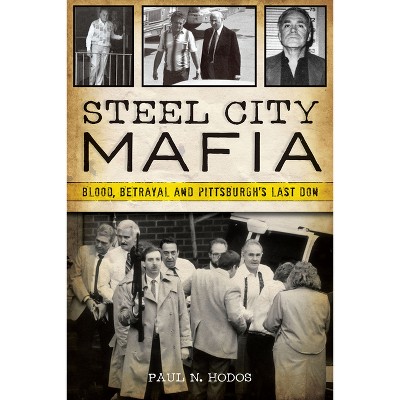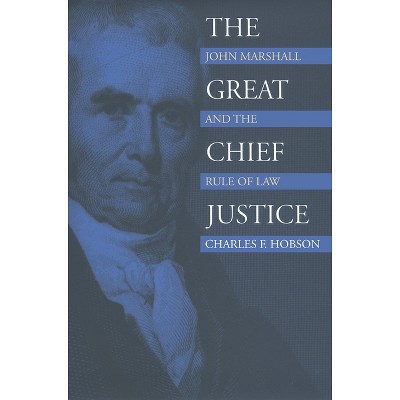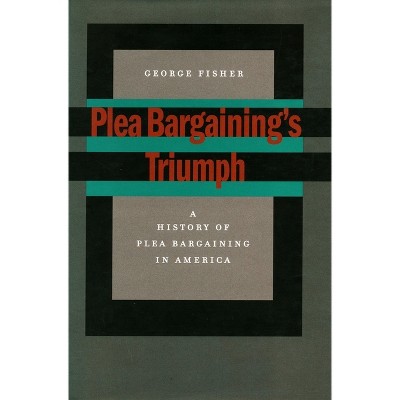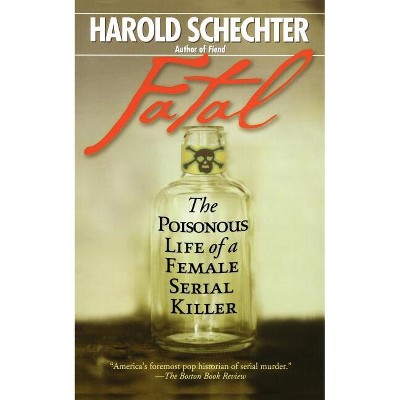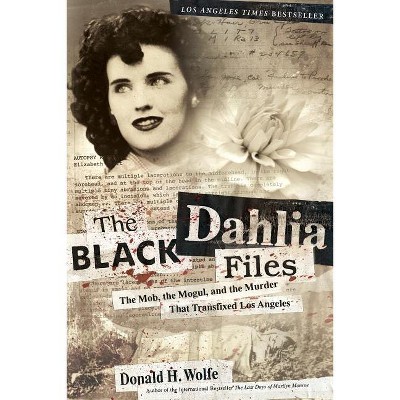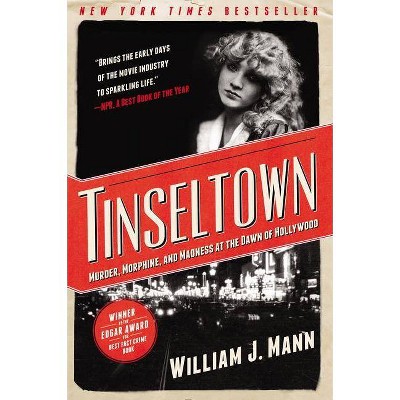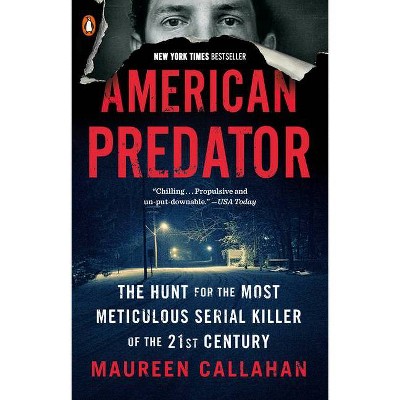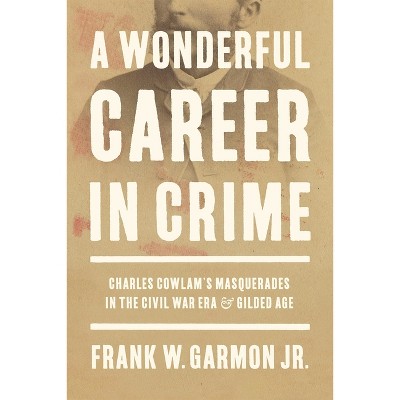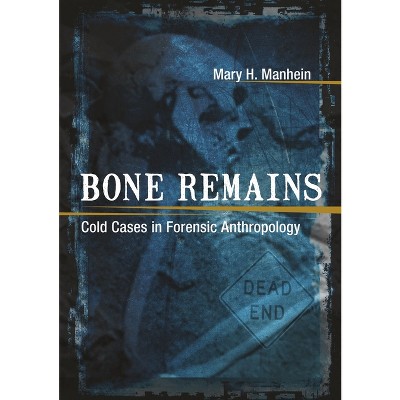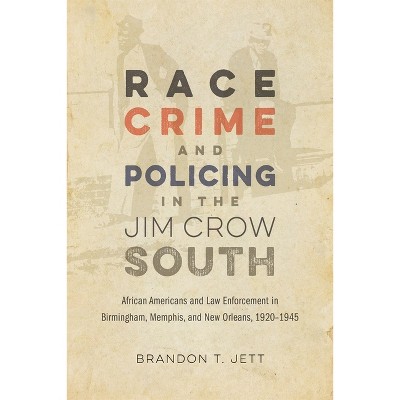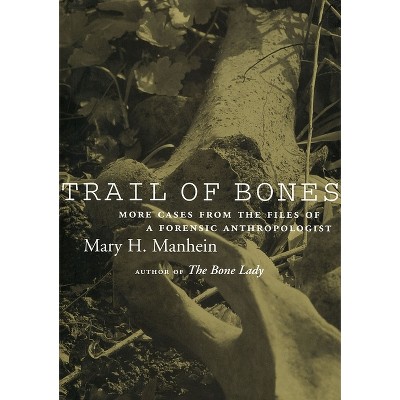Sponsored

Roots of Violent Crime in America - by Barry Latzer (Hardcover)
$51.78Save $3.22 (6% off)
In Stock
Eligible for registries and wish lists
Sponsored
About this item
Highlights
- The Roots of Violent Crime in America is criminologist Barry Latzer's comprehensive analysis of crimes of violence--including murder, assault, and rape--in the United States from the 1880s through the 1930s.
- About the Author: For over three and a half decades, Barry Latzer served as professor of criminal justice at John Jay College, CUNY, where he was a member of the graduate faculty.
- 418 Pages
- True Crime, General
Description
About the Book
"Barry Latzer's "The Roots of Violent Crime in America" is a sweeping, comprehensive, in-depth history of murder, assault, rape, and other crimes of violence in the United States. Latzer challenges much of the conventional thinking about violent crime by combining the theoretical perspectives and methodological rigor of criminology with both a synthesis of historical scholarship and original research and analysis. In doing so, he provides a record of the rise and fall of violent crime in American history, especially from the late nineteenth century to the end of the Great Depression, and contests many of the shibboleths associated with that history. Many of Latzer's conclusions belie current thinking about crime in the late nineteenth and early twentieth centuries. For example, he suggests that urban poverty was not a significant cause of violent crime in the era. Indeed, in the late nineteenth century, when U.S. cities were expanding at a torrid pace and impoverished immigrants were flooding into city slums, violent crime rates and predatory attacks on strangers were relatively modest, especially when compared to what he deems the crime tsunami of the post-1960s era. Latzer goes on to show that rural areas were far more violent than large cities in the period, when the rural South and the thinly populated Far West had much higher levels of violent crime than the big cities of the East and Midwest. He contends that the weakness of government controls and the subculture of violence of southerners played significant roles in elevating rural violence. Latzer downplays racism and bigotry as causes of violent crime, pointing out that many social groups confronted massive levels of discrimination and abuse, yet only some engaged in violent crime at high levels. According to him, much depends on the cultural predispositions of the group in question. For instance, both African Americans and white southerners were particularly violent, though the mistreatment of blacks far exceeded anything experienced by white southerners, and both manifested powerful subcultures of violence. Jewish and Italian immigrants to the urban slums of New York City confronted discrimination and urban squalor, but the Italian immigrants engaged in much higher levels of violent crime than the Jewish immigrants. Latzer also contends that Prohibition in the 1920s was not a significant cause of violent crime. Instead, he argues, the Nineteenth Amendment prevented more violent crime than it caused. Though the bootlegger wars contributed significantly to the murder toll in some of America's biggest municipalities, Latzer points out that Prohibition also killed big city saloons, the hub of vice, corruption, and much of the criminal violence of the period. Moreover, the law dramatically reduced alcohol consumption, which given the well-established link between alcohol and violence, reduced crime overall, and especially crime that was violent. "The Roots of Violent Crime in America" will serve as a reference on the history of crime in the United States. Its unique and well-documented insights also take this work to the next level, providing thought-provoking challenges that are bound to reframe the narrative surrounding this fascinating issue"--Book Synopsis
The Roots of Violent Crime in America is criminologist Barry Latzer's comprehensive analysis of crimes of violence--including murder, assault, and rape--in the United States from the 1880s through the 1930s. Combining the theoretical perspectives and methodological rigor of criminology with a synthesis of historical scholarship as well as original research and analysis, Latzer challenges conventional thinking about violent crime of this era.
While scholars have traditionally cast American cities in the late nineteenth and early twentieth centuries as dreadful places, Latzer suggests that despite overcrowding and poverty, U.S. cities enjoyed low rates of violent crime, especially when compared to rural areas. The rural South and the thinly populated West both suffered much higher levels of brutal crime than the metropolises of the East and Midwest. Latzer deemphasizes racism and bigotry as causes of violence during this period, noting that while many social groups confronted significant levels of discrimination and abuse, only some engaged in high levels of violent crime. Cultural predispositions and subcultures of violence, he posits, led some groups to participate more frequently in violent activity than others. He also argues that the prohibition on alcohol in the 1920s did not drive up rates of violent crime. Though the bootlegger wars contributed considerably to the murder rate in some of America's largest municipalities, Prohibition also eliminated saloons, which served as hubs of vice, corruption, and lawlessness. The Roots of Violent Crime in America stands as a sweeping reevaluation of the causes of crimes of violence in the United States between the Gilded Age and World War II, compelling readers to rethink enduring assumptions on this contentious topic.Review Quotes
A forceful and eloquent book that reminds us of the importance of history and power of culture to promote or deter violence.--Randolph Roth, author of "American Homicide"
Everyone has beliefs on the causes of violent crime, but most are based on myths, stereotypes, political ideology, and fact-free conventional wisdom. In this fascinating book, Barry Latzer presents actual data on the history of crime in America, filled with surprises and interpreted with insight and nuance.--Steven Pinker, Johnstone Professor of Psychology, Harvard University, and the author of "The Better Angels of Our Nature: Why Violence Has Declined"
In The Roots of Violent Crime in America, criminologist Barry Latzer offers an engaging and trenchant analysis that challenges much of the conventional wisdom on the relationship between race and violence in modern America. Historians, criminologists, legal scholars, and indeed anyone interested in race and criminal justice will want to read this thoughtful, provocative book.--Jeffrey S. Adler, Professor of History and Criminology, University of Florida, and Author of "Murder in New Orleans: The Creation of Jim Crow Policing"
Our national debates over race, policing and disparities in the criminal justice system are often as heated as they are uninformed, which is why The Roots of Violent Crime in America is such a welcome addition to the literature. Barry Latzer's book offers historical context and cool-headed analysis to a discussion that sorely needs more of both. He follows the data where they lead and reports facts that other social scientists and journalists omit or obscure in the interests of political correctness. This is a scholarly but accessible book that meets the moment.--Jason L. Riley, Wall Street Journal columnist and author of "Maverick: A Biography of Thomas Sowell"
Timely and well-written, Roots of Violent Crime is an amazingly thorough scholarly account; it is replete with well-placed descriptive statistics and includes a provocative and detailed granular historical analysis. For anyone truly interested in the sociology of violent crime, this book is a must-read.--Elijah Anderson, Yale University, and author of "Code of the Street"
Latzer's Roots of Violent Crime in America, along with his previous book, The Rise and Fall of Violent Crime, provide one of the best comprehensive analyses of violent crime over the last 150 years of American history. Together, these works will serve as the ultimate reference for anyone interested in the subject. Latzer's analysis is even-handed, thoroughly researched, and elegantly written. As I said regarding his first book, he convincingly cuts through the prejudices, passions, and politics surrounding both popular and scholarly explanations of this controversial subject. Latzer's Roots of Violent Crime makes his achievement even more magnificent.--Roger Lane, Professor Emeritus of History, Haverford College
Together with his earlier The Rise and Fall of Violent Crime in the America, Barry Latzer has given us a masterful synthesis of an enormous amount of historical and statistical data to refute, quite convincingly, simplistic notions that violent crime can be almost entirely explained by socioeconomic disadvantage. There are, Latzer shows, many factors at play, including the size of the young male population, the role of gangs, the availability of firearms, and the use of narcotics. But perhaps Latzer's most distinctive contribution is his emphasis on the cultures of the various subgroups of immigrants who came to these shores by the millions in the seventeenth through twentieth centuries. This is social science of the highest quality: nonideological, data driven, and characterized by a deep desire to understand and explain social phenomena.--Joseph Bessette, Alice Tweed Tuohy Professor of Government and Ethics, Claremont McKenna College and Senior Research Fellow, Claremont Graduate University
About the Author
For over three and a half decades, Barry Latzer served as professor of criminal justice at John Jay College, CUNY, where he was a member of the graduate faculty. He has written five books and nearly ninety scholarly articles and research reports.Dimensions (Overall): 9.0 Inches (H) x 6.0 Inches (W) x 1.06 Inches (D)
Weight: 1.72 Pounds
Suggested Age: 22 Years and Up
Number of Pages: 418
Genre: True Crime
Sub-Genre: General
Publisher: LSU Press
Format: Hardcover
Author: Barry Latzer
Language: English
Street Date: March 17, 2021
TCIN: 91571666
UPC: 9780807174296
Item Number (DPCI): 247-32-1926
Origin: Made in the USA or Imported
If the item details aren’t accurate or complete, we want to know about it.
Shipping details
Estimated ship dimensions: 1.06 inches length x 6 inches width x 9 inches height
Estimated ship weight: 1.72 pounds
We regret that this item cannot be shipped to PO Boxes.
This item cannot be shipped to the following locations: American Samoa (see also separate entry under AS), Guam (see also separate entry under GU), Northern Mariana Islands, Puerto Rico (see also separate entry under PR), United States Minor Outlying Islands, Virgin Islands, U.S., APO/FPO
Return details
This item can be returned to any Target store or Target.com.
This item must be returned within 90 days of the date it was purchased in store, shipped, delivered by a Shipt shopper, or made ready for pickup.
See the return policy for complete information.
Frequently bought together
Guests also viewed

$15.00
was $15.99 New lower price
4.8 out of 5 stars with 5 ratings

